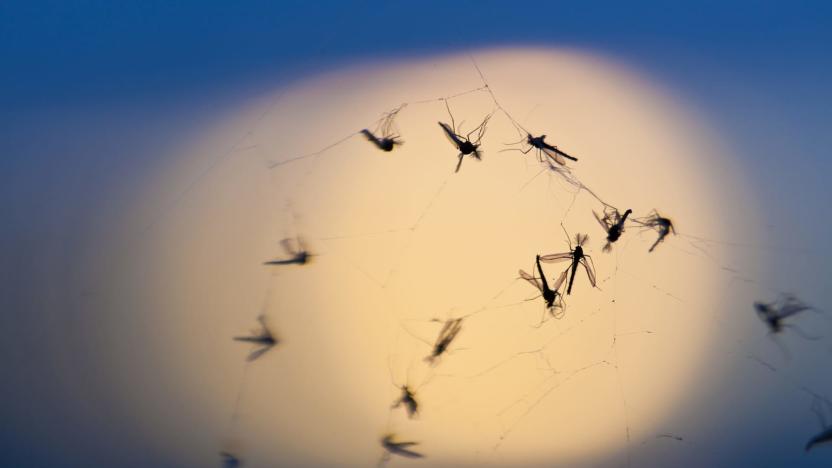DengueFever
Latest

Verily's answer to Fresno's mosquito woes is 20 million more
Last year, executives of Alphabet's life science arm, Verily, discussed a project aimed at controlling invasive mosquito populations, the results of which are now going into effect. To combat the mosquito species that carries viruses like Zika and dengue, the company will release a ton of bacteria-infected male mosquitoes in Fresno, California where they should drastically bring down numbers of wild mosquitoes.

ICYMI: Genetically-modified mosquitoes are coming
try{document.getElementById("aol-cms-player-1").style.display="none";}catch(e){}Today on In Case You Missed It: Voters in the Florida Keys may have passed a measure to use bioengineered mosquitoes to combat the Zika virus and Dengue fever, but it's still a battle to get a community to accept the insects. The FDA has approved use of altered bugs that are designed to mate, which would then result in offspring that would quickly die. You can get caught up on the back-and-forth, here.

Purdue researchers discover how Zika virus is structured
By now, you've probably heard of the Zika fever. You know, the mosquito-carried malady that's been declared an international health emergency and can trigger miscarriage for pregnant women or microcephaly in fetuses. Well, researchers from Purdue University have determined how the virus is structured -- an important step to understanding it and how to guard against the disease. Purdue says that through its research, the team discovered that Zika is structured a lot like other flaviviruses (West Nile virus, tick-borne encephalitis, Dengue virus) which could help speed treatment along.

Gene-modded mosquitoes will fight Dengue Fever in Brazil
The Brazilian city of Piracicaba has a potent new weapon in the ongoing fight against Dengue Fever, which infects more than a million people annually: genetically modified mosquito lotharios Created by Oxitec of Abingdon, UK and bred locally within Brazil, these GM mosquitoes (all of which are male) are designed to crash the local population before they can spread the tropical disease. More than six million have been released throughout Piracicaba since April. When a GM male mates with a wild female, his sapper genetics cause the resulting larvae to die before they can reach adulthood. What's more, the larvae also carry a genetic mutation that causes them to glow red under UV light, giving researchers an easy way to identify them on sight. "It gives an instant readout of how successfully you're driving down the native population," Hadyn Parry, chief executive of Oxitec, told New Scientist.



